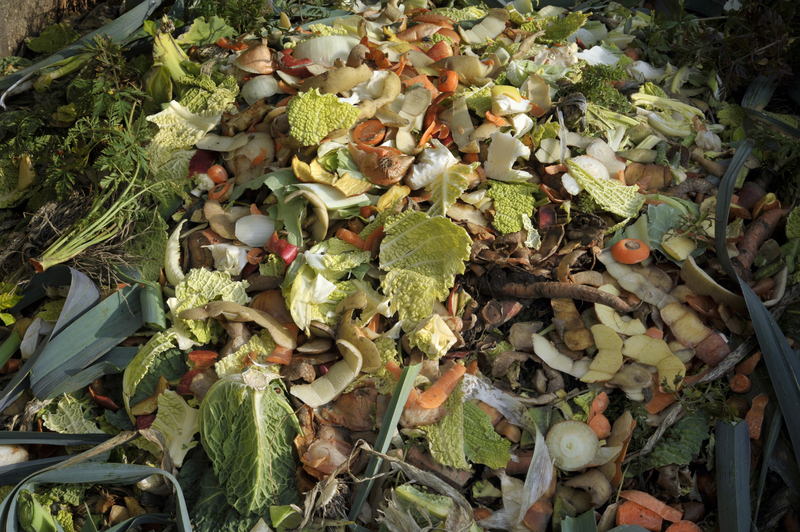The Environmental Significance of Waste Clearance Services
In our rapidly urbanizing world, effective waste clearance services have become fundamental to maintaining environmental health and supporting sustainable living. This comprehensive guide will delve into the vital environmental importance of professional waste clearance, explore how these services help minimize risks, and provide actionable insights for individuals and businesses seeking to make responsible choices.
Understanding Waste Clearance Services: A Foundation for Sustainability
Waste clearance services involve the collection, sorting, and appropriate disposal or recycling of unwanted materials from homes, offices, construction sites, and industrial facilities. These services are crucial in managing the ever-increasing volumes of waste generated by modern society and are pivotal in the pursuit of a healthier planet. The strategic management of waste supports conservation, mitigates pollution, and aligns with global efforts to curb climate change.
What Makes Waste Removal Essential for the Environment?
- Reduction of Landfill Use: Professional rubbish clearance helps divert reusable or recyclable materials from landfills, reducing land contamination and greenhouse gas emissions.
- Resource Conservation: Sorting and recycling waste conserves raw materials, lessening the need for virgin resource extraction and supporting a circular economy.
- Prevention of Pollution: Responsible waste removal services reduce the risk of soil, water, and air pollution associated with improper disposal practices.
- Reduction in Wildlife Harm: Eliminating improperly disposed waste prevents injuries and deaths to wildlife exposed to hazardous debris or entangled in packaging.
- Promotion of Sustainable Urban Environments: Timely waste clearance ensures clean, healthy spaces that benefit entire communities.

Environmental Benefits of Professional Waste Clearance Services
Engaging experts for waste clearance guarantees responsible handling and disposal. This has far-reaching repercussions for the environment and public health. Here's an in-depth look at these environmental advantages:
1. Reducing Landfill Waste and Greenhouse Gas Emissions
Most household and commercial waste ends up in landfills, where it decomposes anaerobically to produce methane--a greenhouse gas significantly more potent than carbon dioxide. Professional waste collection and clearance services play an indispensable role in diverting materials, such as paper, plastics, metals, and electronics, away from landfills by prioritizing recycling and composting.
- Lower Emissions: Recycling releases fewer emissions compared to manufacturing products from raw materials.
- Reduced Landfill Dependency: Segregation of waste at source curtails the amount funneled to dumps, lowering environmental strain.
2. Promotion of Recycling and Circular Economy Practices
Waste clearance providers are equipped to separate recoverable materials for recycling, fostering the implementation of circular economy principles. By recovering value from waste, these services minimize the need for resource extraction and manufacturing, which have substantial ecological footprints.
- Resource Reuse: Old electronics, metals, and plastics can be processed and reincorporated into production cycles.
- Protection of Ecosystems: With fewer raw materials required, mining and deforestation impacts are mitigated.
3. Improved Public Health and Sanitation
Efficient waste removal eliminates potential breeding grounds for disease vectors, such as insects and rodents. Unattended rubbish piles can leach hazardous chemicals, affecting soil and water quality and, consequently, human health. Professional services ensure hazardous substances are disposed of responsibly and legally.
4. Contribution to Cleaner Waterways and Oceans
Without effective waste management, litter can travel via stormwater drains into rivers and seas, causing marine pollution and endangering aquatic life. Proper clearance drastically reduces the volume of plastics and other pollutants reaching our waterways.
- Prevention of Microplastic Contamination
- Marine Life Protection
5. Compliance with Environmental Laws and Regulations
Professional waste clearance companies have the expertise to comply with stringent environmental regulations on safe disposal, recycling quotas, and hazardous material management. Their operations help individuals and businesses conform to the law, avoid fines, and support regional sustainability goals.
Types of Waste Covered by Clearance Services and Environmental Impacts
Waste clearance services manage diverse waste streams, each with unique environmental challenges. Proper handling is essential for minimizing ecological damage:
- Household Waste: Organic matter, packaging, electronics, and textiles require separation and recycling to prevent pollution.
- Construction and Demolition Waste: Debris--such as concrete, wood, or asbestos--can be hazardous. Specialized clearance ensures safe disposal and recycling.
- Industrial Waste: Includes chemicals and heavy metals. Professional handlers prevent soil and water contamination.
- Hazardous Waste: Paints, oils, batteries, and pharmaceuticals must be disposed of under strict protocols to safeguard communities and ecosystems.
Special Focus: Electronic Waste
E-waste is a rapidly growing problem globally. Waste removal specialists recover rare metals from electronics, ensure proper disassembly, and avoid leaching of toxins like lead and mercury that threaten groundwater and wildlife.
Best Practices for Environmentally-Responsible Waste Clearance
Individuals and organizations alike can boost the positive environmental outcomes of waste clearance by following these best practices:
- Segregate at Source: Separate recyclables, compostables, and hazardous items; this facilitates efficient collection and recycling.
- Choose Certified Waste Clearance Providers: Look for firms with credentials and transparent environmental policies.
- Minimize Single-Use Products: Opt for reusable or recyclable materials to reduce overall waste generated.
- Educate Staff or Household Members: Training ensures everyone understands the environmental value of correct waste sorting and disposal.
- Schedule Regular Clearance: Preventing accumulation reduces risks to the environment and public health.
The Role of Technology in Greener Waste Clearance
Advancements in waste clearance technologies--including AI-powered sorting systems, GPS-tracked collection routes, and real-time data reporting--not only increase efficiency but also minimize resource use and emissions.
Some innovations transforming the industry:
- Automated Sorting Facilities
- Dynamic Route Optimization to cut fuel consumption
- Digital Auditing of Waste Flows for transparency and compliance
Critical Challenges in Waste Clearance and Environmental Protection
While the environmental benefits of waste clearance are significant, several challenges remain:
- Illegal Dumping and Littering: Unregulated disposal methods often bypass responsible services, polluting the environment.
- Poor Consumer Awareness: Many individuals are unaware of the full environmental implications of their waste choices.
- Resource Constraints: Not all areas or municipalities can afford modern, eco-friendly waste clearance infrastructure.
- Contamination of Recyclables: Improper sorting can lead to entire batches of recycling being sent to landfill.
Overcoming the Obstacles: Building a Cleaner Tomorrow
Tackling these challenges requires collaboration between governments, businesses, waste management services, and the community. Implementing stricter regulations, scaling up public education, and investing in advanced recycling and clearance technologies is essential.
How to Select an Environmentally-Responsible Waste Clearance Company
Choosing the right provider ensures that your waste is managed in the most sustainable way possible. Here are key considerations:
- Licensing and Certification: Only engage with companies authorized to handle waste in compliance with national standards.
- Transparent Disposal Practices: Top firms detail their recycling rates and landfill diversion strategies.
- Commitment to Sustainability: Look for active participation in environmental initiatives or partnerships with green organizations.
Questions to Ask Your Waste Clearance Provider
- What percentage of waste is recycled or composted?
- How do you handle hazardous or electronic waste?
- What steps do you take to minimize environmental impact during collection?

The Future of Waste Clearance: Towards Zero-Waste Communities
The future of waste clearance services is intrinsically linked to the evolution of the wider sustainability movement. Trends indicate a move toward zero-waste goals, increased material recovery, and a reduction in single-use products. By harnessing technology and fostering public-private partnerships, waste clearance will continue to be a linchpin of environmental progress.
- Closed-Loop Urban Systems: Cities are planning for waste clearance and recycling to feed into local manufacturing, creating sustainable resource loops.
- Consumer Responsibility Campaigns: Education focuses on reducing waste at the source as much as possible.
- Enhanced Producer Accountability: Regulations hold manufacturers responsible for the full lifecycle of products, including ultimate disposal.
Conclusion: Why Waste Clearance Services Matter for a Sustainable Planet
As we strive to create a more ecologically balanced future, the role of waste clearance services cannot be understated. These services sit at the intersection of public health, environmental protection, and sustainable urban living. By choosing responsible waste clearance providers and practicing mindful disposal habits, individuals and businesses contribute directly to:
- Reduced pollution and greenhouse gas emissions
- Conservation of natural resources
- Cleaner communities and healthier ecosystems
- Sustainable economic development
The environmental significance of waste clearance is clear: effective management of our trash today shapes the planet we leave for future generations. Let us all play our part, starting with a simple commitment to proper waste clearance and a cleaner, greener world.